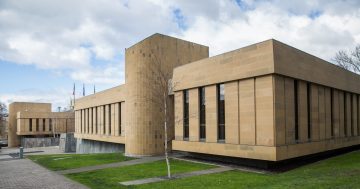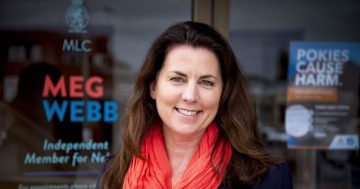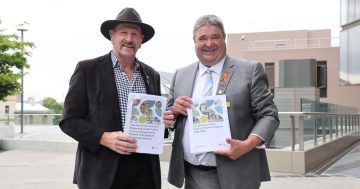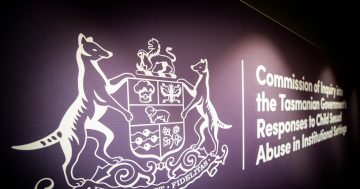
Meg Webb MLC said it was clear local councils and the Upper House thought the DAP concept could be a positive thing, as long as it facilitated a good planning process and genuine stakeholder and community engagement. Photo: Screenshot.
An alternative pathway for development approvals has been shut down in Tasmania’s Upper House, with Independent Member for Nelson Meg Webb calling it a “fundamentally anti-democratic and flawed bill”.
On the last day of sitting for the Legislative Council, a controversial piece of legislation proposed by the incumbent Liberal State Government was defeated eight (all independents plus Greens MLCs) votes to six (Liberal and Labor MLCs).
The Development Assessment Panels (DAPs) Bill was, according to Planning and Housing Minister Felix Ellis, an effort to improve the certainty, transparency and effectiveness of planning across the island state. If the bill had been passed, it would have allowed certain developments to be assessed by independent expert DAPs established by the Tasmanian Planning Commission.
However, according to Ms Webb, despite a rushed consultation period of the draft bill, 92 per cent of the submissions received by the government opposed the DAP proposal in the bill.
“It is very telling that the entire Assembly crossbench and the range of Upper House independents both voted against this poor proposal of the government,” she said. “This vote provides an opportunity for the Premier and Minister to demonstrate maturity, and work respectfully and cooperatively with the local government sector.
“The ball is in their court.”
During the bill’s second reading, Leader of Government in the Upper House, Leonie Hiscutt, told the chamber the bill would provide opportunities for certain discretionary development applications to be referred to an independent expert DAP for determination.
For an application to be eligible for such an assessment, it would have to be:
- A development, including social and affordable housing or a subdivision to facilitate social and affordable housing
- A development valued over $10 million in metropolitan areas, $5 million in non-metropolitan areas, or $1 million if council is both the applicant and planning authority
- Or deemed suitable for determination by the Planning Minister, as the development: could be significant for its area or the state; has concerns around the planning authority’s ability to assess its application; is likely to be controversial; has a real or perceived conflict of interest or bias involving the planning authority.
Yet in the eyes of Ms Webb, the DAP proposal would basically tell local governments: “You may be allowed to make a decision, but if the developer thinks you might make the wrong one, they can choose to go down this other path.”
“Democratically elected representatives elected by their community peers to make decisions on the community’s behalf set in our legislation as the decision-makers, as the planning authorities primarily, are having that role ripped away from them in relation to these particular projects,” she told the chamber.
“It is beyond their control in terms of who decides that those particular projects go through a DAP process.”
Of the 482 submissions received by the government during its consultation period on the bill, 440 opposed the DAP proposal. This included the Local Government Association of Tasmania (LGAT), which Ms Webb claimed in the LC was intentionally left out of the discussion.
“The LGAT, the peak group for the very sector this is most relevant to, was still in the process of bringing together that sector to formalise its response to this,” she said. “But of course, we could not wait for that.”
On behalf of Tasmania’s 29 councils, LGAT welcomed the decision made by the Legislative Council to reject the proposed DAP Bill.
The association’s president and Break O’Day Council Mayor Mick Tucker reiterated that the State Government should be focusing on the planning reforms that were already underway and updating the Regional Land Use Strategies.
“The government has tried to unfairly blame councils for trying to do their best with an outdated system owned, but not maintained, by the State Government,” he said. “This strategy has clearly backfired with the decision made by the Legislative Council.”
LGAT said its sector remained open to working with the government on “sensible planning reform”, which was likely to happen in the new year, according to Minister Ellis.
“It is the government’s intention to further consult on our pro-development bill and reintroduce it in the new year – because it’s what Tasmanians deserve,” he said.











